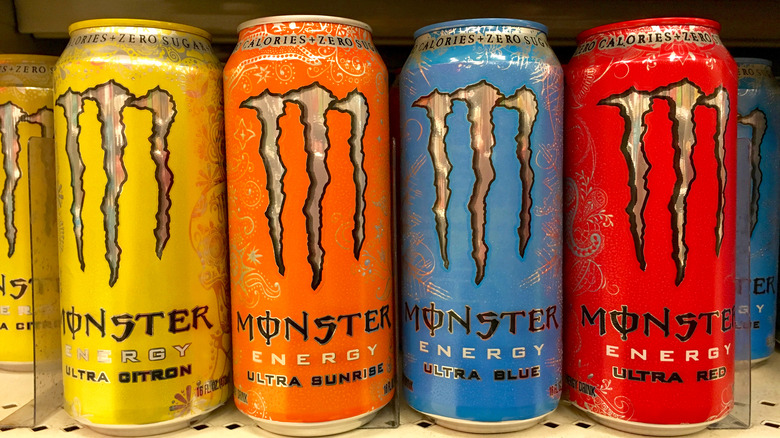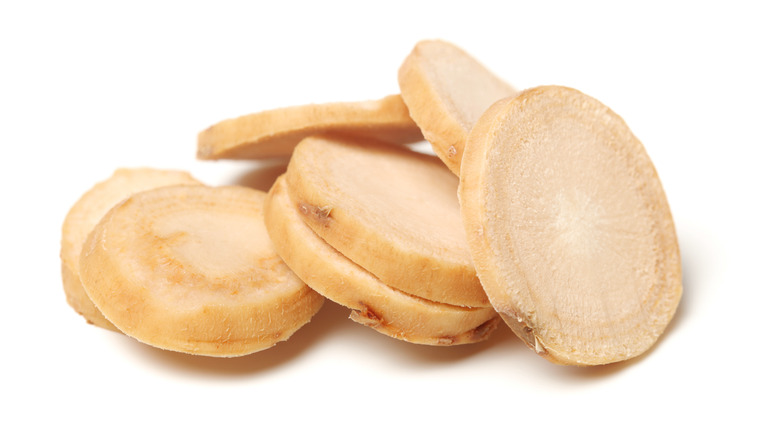The Real Reason Monster Energy Drinks Were Banned In India
If you think the US imposes some rigorous standards on what Americans should and should not be allowed to consume, then you should see what has gone on in India. In May 2015, the Food Safety and Standards Authority of India (FSSAI) banned Monster energy drinks, along with several other brands, including Tzinga and Cloud 9, according to Down to Earth. Before we even get into the "why" of this, the first thing you need to understand about the FSSAI is that this regulatory body did not even exist prior to 2006, when it was created by legislative act to "lay down science based standards for articles of food and to regulate their manufacture, storage, distribution, sale and import, to ensure availability of safe and wholesome food for human consumption and for matters connected therewith or incidental thereto" (via FSSAI).
The second, and perhaps more important thing to know, is that the FSSA has no such standards for energy drinks (via FSSAI Standards). So, then what was the reason for India's ban of Monster energy drinks? And can they really even do that?
It appears that India had a few problems with Monster energy drinks
Although the FSSAI does not even have standards with regard to energy drinks (via Food and Beverage News of India (FBN)), it nevertheless decided to ban Monster energy drinks in 2015. In a letter dated May 8, 2015, it took issue with the fact that Monster used a combination of ginseng and caffeine, which it deemed "irrational" because ginseng and caffeine "have opposing effects on the human body." In addition, it took issue with the high levels of vitamins B2, B3, B6, and B12, which were it deemed to be in excess of the recommended daily intake.
Ginseng (pictured above) is an herb that is "believed to restore and enhance well-being," while "caffeine stimulates the central nervous system," according to the Times of India. Moreover, the amount of caffeine contained in Monster energy drinks was deemed by the FSSAI to be "unsafe" — despite that "India has not declared any standards limiting the caffeine content in energy drinks to be followed by the industry" (via FBN). Accordingly, the FSSA withdrew its "No Objection Certificate" with regard to Monster energy drinks, thereby putting an immediate halt on their "manufacturing, sale, distribution and import."
Nevertheless, the ban did not stick. By 2019, Monster officially became available in India with the release of "Monster Ultra" (aka the "White Monster"), a zero-sugar, citrus-flavored drink containing the "full load" of Monster's energy blend, according to Monster. Monster energy drinks are widely available in India today.

